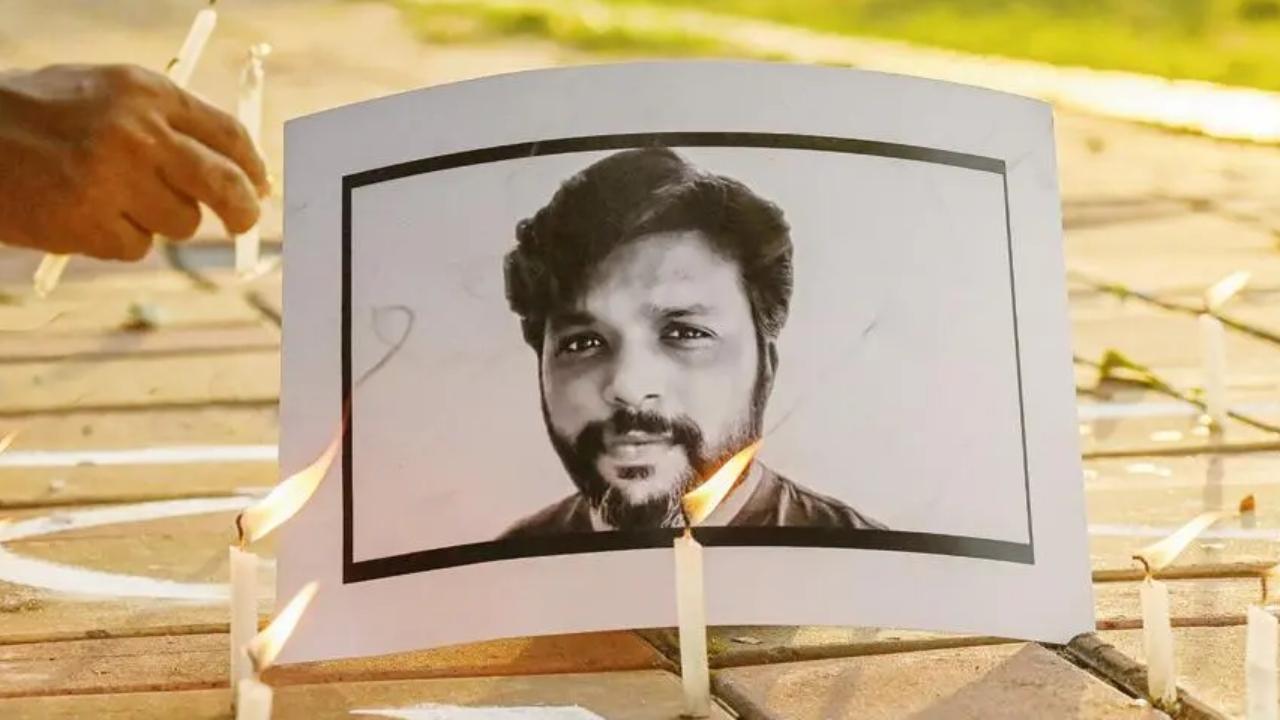Home / News / India News / Article /
He wanted to show the pain and suffering of victims: Danish Siddiqui's father
Updated On: 15 May, 2022 02:34 PM IST | Mumbai | Asif Rizvi
Pulitzer Prize-winning slain photojournalist Danish Siddiqui's father, Akhtar Siddiqui, reflects on his son’s reportage on Covid in India, in an exclusive interview to mid-day.com

Danish Siddiqui. File Pic
Slain Indian photojournalist Danish Siddiqui was posthumously awarded the prestigious Pulitzer Prize in feature photography on May 9. This was Danish's second Pulitzer win for his outstanding work in journalism; he had also received the 2018 Pulitzer Prize for feature photography for documenting the Rohingya refugee crisis.
According to the Pulitzer Prize's website, Reuters photojournalist Danish and his colleagues, Adnan Abidi, Sanna Irshad Mattoo and Amit Dave, were together awarded for the 'images of Covid’s toll in India that balanced intimacy and devastation, while offering viewers a heightened sense of place'.



